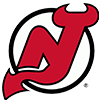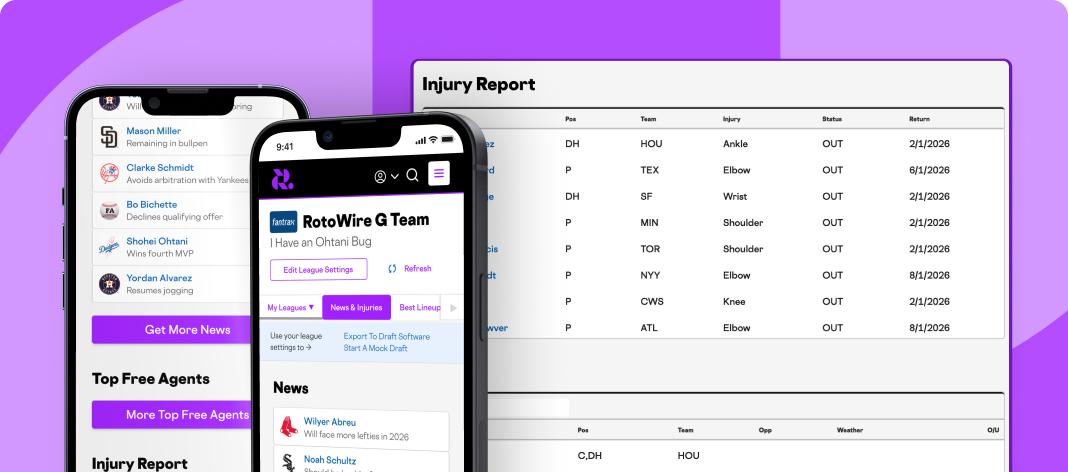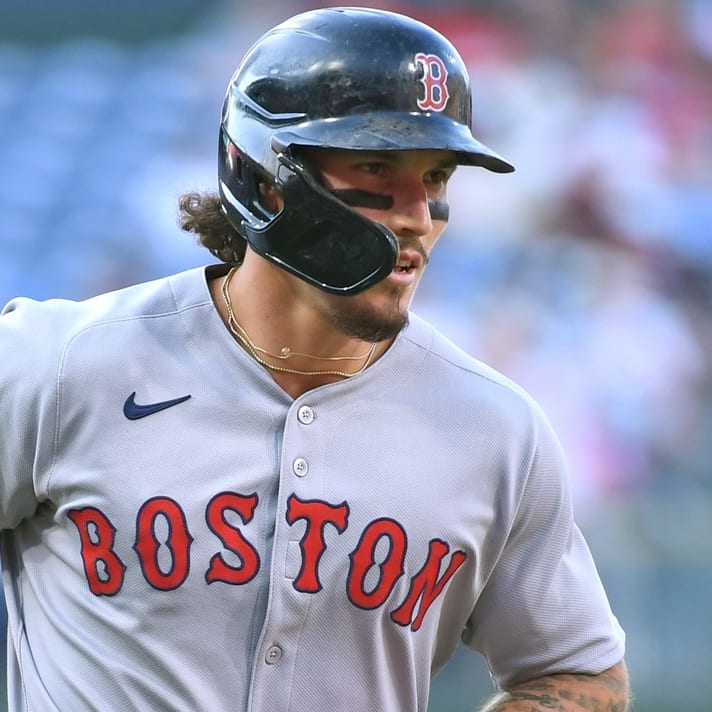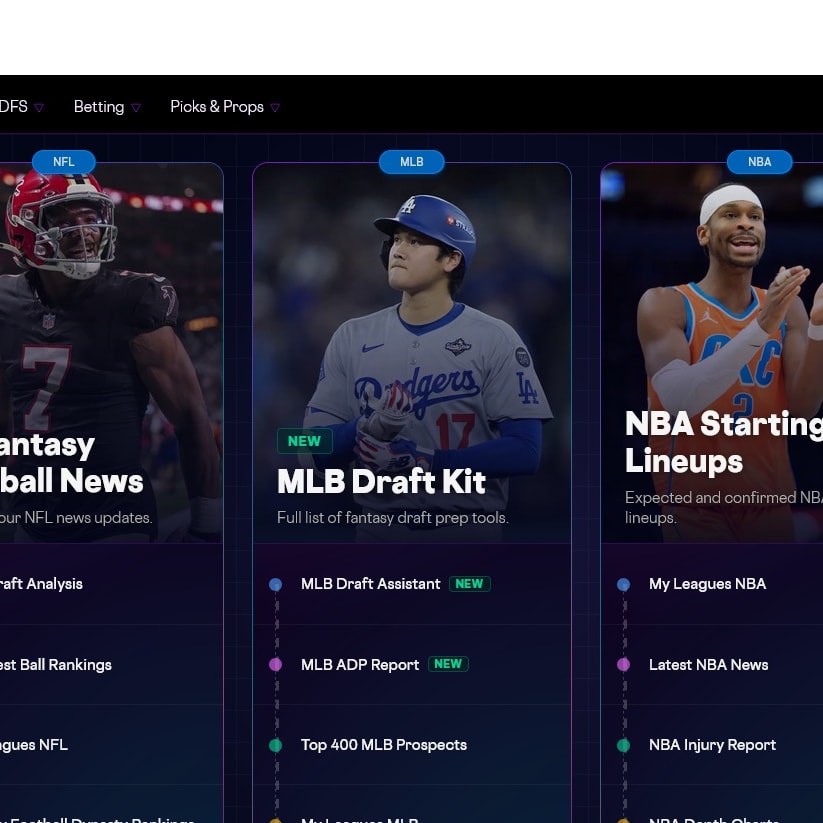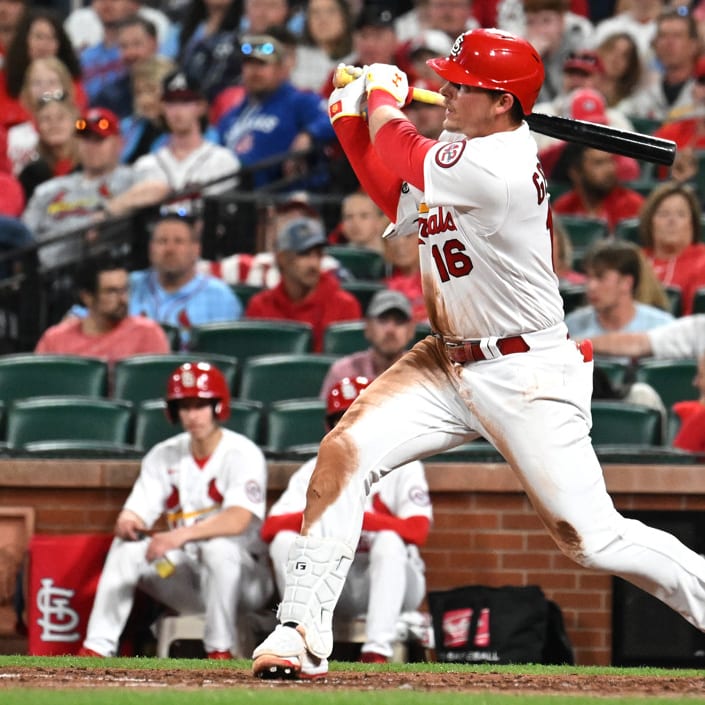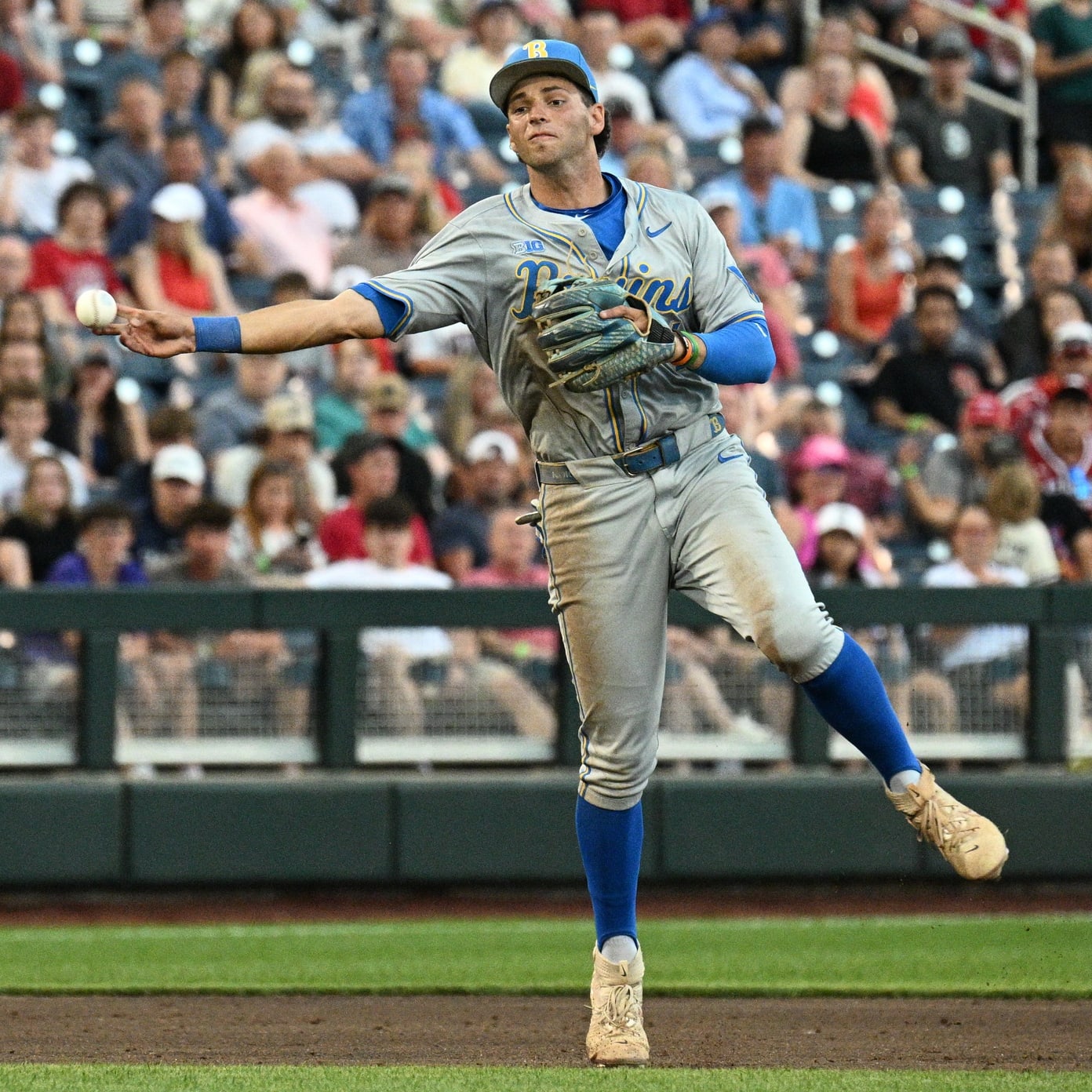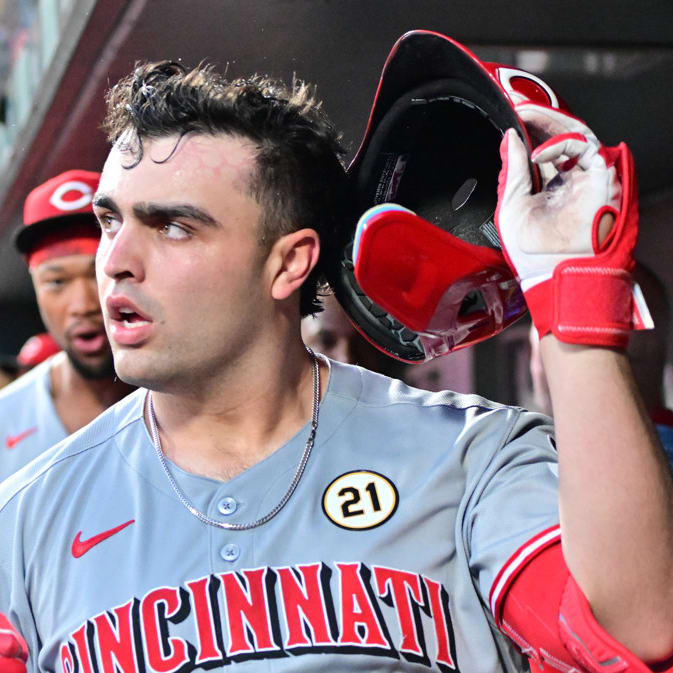With the MLB playoffs rolling along, the number of full roster slates available on FanDuel is dwindling.
The single-game slates have been available throughout the season, but if you're like me, you may have concentrated your efforts on the more traditional contests.
For those new to the format, the biggest difference in the contests is the lineup structure.
There are no pitchers.
Each roster is comprised of an MVP, whose point total is multiplied by 1.5 to make that selection more valuable than the other four players in that lineup. Teams are required to use one infielder and one outfielder, while the final two roster spots are utility spots, which can be any player from any position.
You must roster at least one player from each of the two teams involved in the matchup.
Other than the MVP multiplier, the scoring system is the same as the other FanDuel baseball contests.
Since three spots can be players from any position, it's reasonably easy to stack any combos you want within the limits of the $35,000 salary cap.
Although there are no pitchers available for use in the contest, the pitchers involved in Tuesday's game are still a useful starting point.
Not surprisingly, the Yankees were better than average against right-handed pitching in 2018, carrying a 108 wRC+. Of course, the hitter-friendly tendencies of Yankee Stadium are well known, and left-handed hitters get an even greater park boost than righties in the Bronx. Red Sox starter Rick Porcello posted a career-high 25.0% K% against lefties this season, cutting his ERA to 4.28 and his WHIP to 1.21 in that split after finishing with a 5.25 ERA and 1.47 WHIP in 2017.
While Porcello made adjustments to his approach, including the reduced use of his four-seamer, he's operated with a seemingly small margin for error when you consider that he's carried a whiff rate below 20 percent against lefties with all but one of his offerings (the less utilized four-seamer). Like most pitchers, he's more effective against same-handed hitters, thanks to his curveball (40.9% whiff rate vs. RHH), slider (27.9% whiff rate) and four-seamer (28.8%) generating whiffs more than 25 percent of the time.
The Yankees' right-heavy lineup is good enough to do damage against any pitcher, but their current roster construction bodes pretty well for Porcello, which at least at a glance, makes stacking the Red Sox a slightly more desirable approach in cash-game lineups.
You may recall that the Red Sox struggled against lefties early in 2018, getting no-hit by Sean Manaea in April and carrying a well-below average wRC+ against southpaws throughout the first half. The season-long mark (89) suggests that it's a below average offense against lefties, but there is no compelling reason to think that the Boston bats will be unable to get to CC Sabathia.
Against righties, Sabathia has worked with his cutter as his main offering (50.2%), while using his slider as his main secondary offering (27.6%) with occasional changeups (12.7%) and sinkers (8.8%). The sinker has been his worst pitch in each of the last three seasons, and opposing righties posted a .483 wOBA against it in 2018. If he simply avoids it entirely, he'll be much better off, especially if he's able to mix in a few more changeups along the way. Against right-handed hitters, it's easily his best weapon, as he's generated more whiffs with it than any other offering.
Ultimately, the problem for Sabathia will be depth, as he's logged 14 innings over three starts against Boston this season (avg: 4.2 IP/start) during a season in which he's gone 153 innings over 29 starts in total (avg: < 5.1 IP/start). Unless the Yankees pounce on Porcello early and open up a big lead, Sabathia will likely hand the game over to the Yankees' parade of relievers in the fourth or fifth inning.
The Yankees are facing elimination, and have the benefit of an off-day Wednesday if they come away with a win in Game 4, so look for David Robertson, Dellin Betances, Zach Britton, and Aroldis Chapman to contribute if this game is competitive, perhaps working in combination to take the ball from Sabathia in the fourth or the fifth to the finish line.
This is where the preference of a Boston stack in cash-games gets slightly dicey. If Sabathia can get through the order twice without yielding much damage, the matchups against Robertson, Betances, Britton and Chapman are more difficult than the matchups the Yankees bats will have in the bridge from Porcello to Boston closer Craig Kimbrel.
The MVP Spot
With the 1.5x multiplier, and plenty of identical combinations in play, getting this spot right is crucial. Especially in cash-game lineups, there is no reason to overthink using the best all-around player in your lineup in this spot. For Boston stacks that include Mookie Betts ($9,000) and/or J.D. Martinez ($8,500), both are fine choices to take the multiplier. If I'm choosing between those two for that boost, I would give it to Betts since he's at the top of the order.
Tournaments become a slightly different animal. If Steve Pearce ($6,500) is hitting third against Sabathia, he would be my slight contrarian twist for the MVP multiplier, even though I expect him to be very highly owned overall at his discounted price. However, if you're playing in a bigger-field tournament, getting a little more creative and rolling with Andrew Benintendi ($7,500) in that spot (hitting second, lefty-lefty against Sabathia, lefty-righty against Robertson and Betances) is probably a better twist.
With Yankee stacks, Aaron Judge ($9,500) and Giancarlo Stanton ($9,000) makes the most sense as cash-game MVP selections, with Judge getting a slight edge thanks to the higher lineup placement. Looking at some alternatives, Didi Gregorius ($8,000) is my preferred MVP twist for tournaments, even though he's likely hitting fifth in the order again Tuesday. If I wanted to do something very different in a multi-entry arrangement for a big-field GPP here, Andrew McCutchen ($6,000) in the leadoff spot will probably get minimal MVP usage, even though a bottom-third of the order bat like Miguel Andujar ($6,500) or Gleyber Torres ($6,000) seems more appealing on the surface.
The Rest of the Build
In a single-game setting, it's important to assemble a lineup that reflects a combination of connected outcomes. The likelihood of those outcomes varies based on the type of contest you enter (cash-game vs. GPP).
Think the Boston lineup goes off? Build a stack starting with the discounted Pearce ($6,500) and working in the direction you prefer: 3-4-5-6, 2-3-4, 1-2-3.
A 3-4-5-6 combo of Pearce, Martinez, Xander Bogaerts ($7,000) and Eduardo Nunez ($4,000) leaves enough cash for Stanton as your standalone Yankees play.
If you chose 2-3-4, which is likely Benintendi, Pearce and Martinez, you have the flexibility of two utility spots for your other pieces, but a very limited amount of money ($6,250/player) to round it out, but punt opportunities might exist with Nunez and Brock Holt ($4,000) at very low prices.
In tournaments, mixing a bottom-of-the-order bat to form a 9-1-2 or 9-1-2-3 stack can be a nice way to save money for better fillers from the opposing side.
Consider that Jackie Bradley Jr. ($4,500) gets the big lefty-bat park boost along with Andrew Benintendi, will opening up enough cash for Mookie Betts. From there, you could mini-stack a pair of Yankees, or opt for a cheap option like Sandy Leon (8-9-1-2) stack to fill the infield spot, and have Aaron Judge as a standalone utility option.
Want maximum raw power from the Yankees' side in a tournament? Go 2-3-4 with Judge, Luke Voit ($7,500) and Stanton, and choose your spots carefully with the remaining $4,500/player for the two utility spots.
Keep in mind that with a pricey Yankees stack, throwing a cheaper dart at the Boston lineup will be the only way to free up enough cash, so keep an eye on the lineup for confirmation of Holt playing over Ian Kinsler, Nunez vs. Rafael Devers, Sandy Leon vs. Christian Vazquez behind the plate. One other variable on the Yankees side will be the availability of Aaron Hicks, as his return would likely drop Luke Voit in the order, and send Brett Gardner to the bench.















